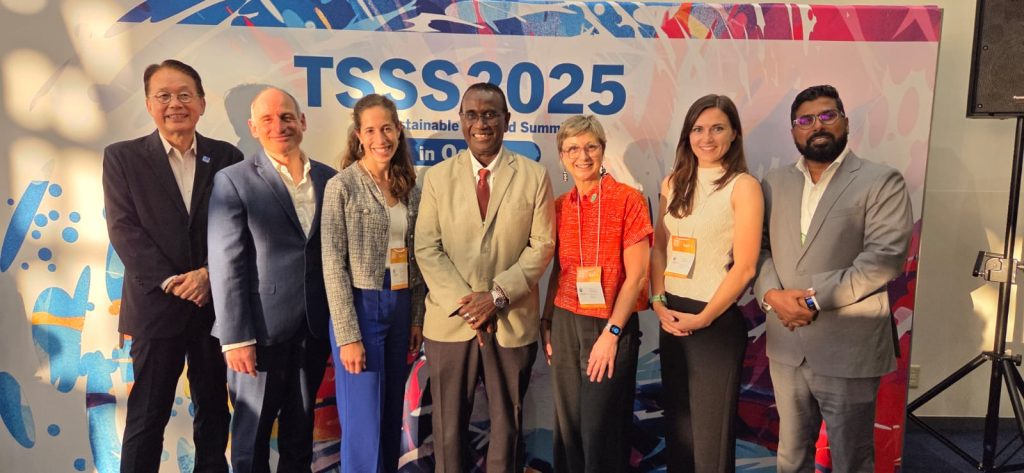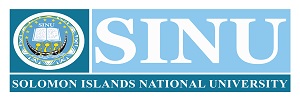
𝐏𝐫𝐞𝐬𝐬 𝐑𝐞𝐥𝐞𝐚𝐬𝐞
𝟏 𝐎𝐜𝐭𝐨𝐛𝐞𝐫 𝟐𝟎𝟐𝟓
On Wednesday October 1, Professor Transform Aqorau, Vice Chancellor of the Solomon Islands National University (SINU), joined leading international experts at the 2025 Tokyo Sustainable Seafood Summit (TSSS) in Osaka, Japan. He spoke as part of a high-level panel session on “Seafood Resource Management in International Waters in the Climate Crisis Era.”
In his presentation, “Climate Change and Fisheries Governance in the Indo-Pacific,” Professor Aqorau shared powerful insights on how the climate crisis is transforming the way we manage the world’s fisheries. He explained that warming oceans, shifting species, acidification, and extreme weather events are not abstract predictions but present realities. These changes are already destabilising ecosystems, eroding food security, and testing the resilience of coastal communities.
Professor Aqorau noted that traditional fisheries governance systems, designed on the assumption of stable fish stocks, are no longer sufficient. As species migrate across exclusive economic zones (EEZs) and into the high seas, the complexity of governing shared resources increases, raising difficult questions of rights, access, and sustainability.
He stressed that the path forward lies in building adaptive and inclusive governance systems that can respond to ecological uncertainty. Drawing from Pacific experiences, he pointed to the achievements of the Parties to the Nauru Agreement (PNA) and the Pacific Islands Forum Fisheries Agency (FFA) as powerful examples of how small island states, by working collectively, can shape global fisheries policy and protect their resources.
Professor Aqorau called for urgent action to strengthen Regional Fisheries Management Organisations (RFMOs), enhance Monitoring, Control and Surveillance (MCS) systems, and embed climate science into every level of decision-making. He further emphasised the need for cross-sectoral cooperation between fisheries, climate policy, and marine conservation, supported by sustainable financing that ensures resilience for the most vulnerable states.
“No single country can meet these challenges alone,” he concluded. “Collaboration across regions, sectors, and nations is the only way we can secure both healthy oceans and the well-being of the communities that depend on them.”
Other distinguished panelists included:
- Masanori Miyahara – Advisor to the Ministry of Agriculture, Forestry and Fisheries of Japan, and President of Yorozu Fisheries Advisory Office.
- Hussain Sinan – Director General, Ministry of Fisheries and Ocean Resources, Republic of Maldives.
The discussion was moderated by Professor Quentin Hanich of the University of Wollongong and the Australian National Centre for Ocean Resources and Security (ANCORS).
First convened in 2015, the TSSS has become one of Asia’s most influential gatherings on sustainable seafood. The summit brings together businesses, governments, researchers, and NGOs to advance environmental sustainability and social responsibility across the seafood industry. Last year marked its 10th anniversary, and in 2025 the summit was held in Osaka for the very first time. Its vision, “Win the Mainstream by 2030—Toward a sustainable and abundant ocean,” continues to inspire collaborative action across the globe.
ENDS//
